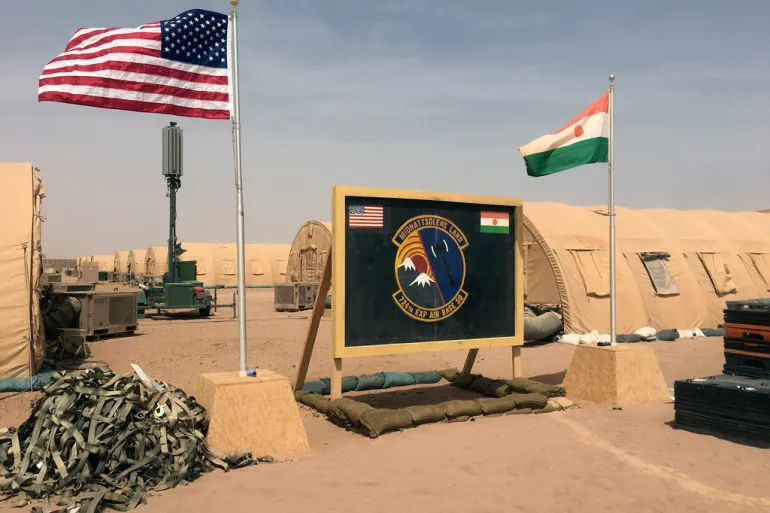
Key Points:
- US forces are withdrawing from Airbase 101 in Niger following a directive from the country’s military leadership.
- Russian military personnel have arrived at the same airbase, raising concerns about shifting alliances and regional power dynamics.
- The US withdrawal is part of a broader trend of Western forces leaving African nations in the wake of recent coups.
US Withdraws from Niger Airbase as Russian Personnel Arrive
Following a directive from Niger’s military leadership, US forces are withdrawing from Airbase 101 near the capital city of Niamey. This development coincides with the arrival of Russian military personnel at the same base, raising concerns about shifting power dynamics in the Sahel region.
Prior to a military coup in July 2023, Niger served as a crucial partner for the US in combatting terrorism and extremist groups like ISIL and al-Qaeda affiliates within the Sahel. The region has witnessed a surge in violence, making international cooperation vital for maintaining stability.
However, the coup led to a reassessment of foreign military presence in the country. In March 2024, Niger’s new military leadership informed Washington of their decision to expel the approximately 1,000 US troops stationed in Niger, marking a significant shift in the country’s alliances.
Russian Arrival and US Concerns
Despite these assurances, the close proximity of US and Russian forces during a period of heightened tensions between the two nations is a cause for concern. The situation in Ukraine and ongoing geopolitical rivalries contribute to a delicate balancing act for Niger’s leadership.
Shifting Alliances in the Sahel
The US withdrawal from Niger is part of a larger trend of Western forces leaving African nations following coups and the rise of military leaders seeking to distance themselves from former colonial powers. France has experienced similar pushback, with their military being expelled from Mali and Burkina Faso.
Meanwhile, Russia has actively sought to strengthen its ties with African nations, presenting itself as a reliable partner without the historical baggage of colonialism. The Wagner Group, a Russian private military company, has already established a presence in Mali, further solidifying Russia’s influence in the region.
Future of US Engagement in Niger
While the withdrawal of US military personnel from Airbase 101 is proceeding in a deliberate and organized manner under the guidance of a senior military official, the long-term trajectory of US involvement in Niger is currently undergoing a period of meticulous analysis.
The recent change in Niger’s leadership and the subsequent shift in foreign policy priorities require a recalibration of US diplomatic and military strategies. Additionally, the introduction of Russian military personnel into the region introduces a new set of variables that must be factored into the decision-making process.
While no definitive decisions have been reached regarding the sustained presence of US military assets in Niger, current operational planning indicates a potential relocation of personnel and resources to US Africa Command installations in Germany. This strategic repositioning would enable the US to maintain a responsive posture while evaluating the evolving circumstances in Niger and the broader Sahel region.
The US remains committed to collaborating with regional and international partners to address security concerns and promote stability in the Sahel. This commitment necessitates ongoing dialogue and a flexible approach to adapt to the dynamic geopolitical landscape.
Impact on Counterterrorism Efforts
The withdrawal of US forces and the arrival of Russian personnel raise questions about the future of counterterrorism efforts in the Sahel. The US had invested significantly in infrastructure, including the construction of Airbase 201, specifically designed for counterterrorism operations against ISIL and al-Qaeda affiliates. The changing landscape of international involvement may require a reevaluation of strategies to address the ongoing security challenges in the region.
